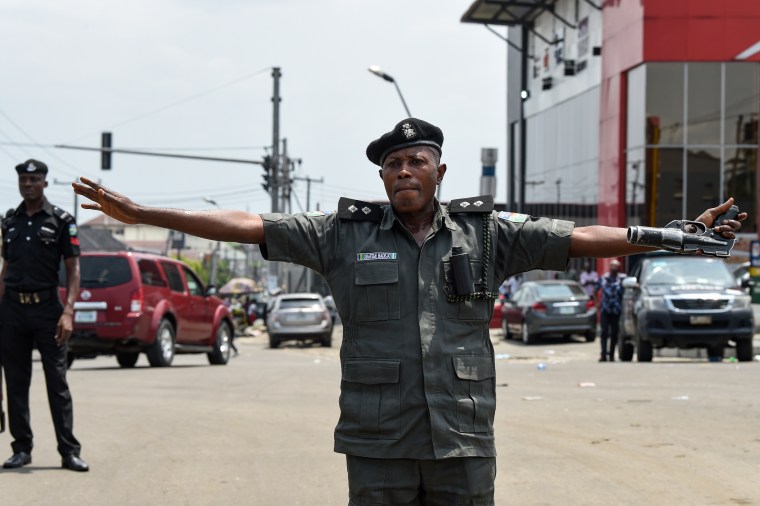Police officers harassed or attacked at least four journalists and media workers in Nigeria’s southern Rivers State in late October 2020, amid protests against police brutality and a curfew imposed by local authorities in response to those protests, according to journalists who spoke with CPJ and news reports. Authorities also fined three news outlets that covered the protests, according to those sources.
On October 21, soldiers threatened to shoot and kill Amaike Ihuoma Okoronkwo, a supervisor of newspaper distribution with the privately owned Guardian newspaper, and denied him access to a road in front of the Mile One police station as he tried to deliver a car full of newspapers to his office nearby, Okoronkwo told CPJ in a phone interview.
Okoronkwo said the soldiers saw his ID and then commented that they could shoot and kill him and get away with it, because no one would care if they killed a journalist.
On October 26, near the Mile One police station in Port Harcourt city, a police officer used sticks to beat Adortan Romeo, a reporter and circulation officer with the Guardian, while he was on his way to the paper’s office, according to Romeo, who spoke to CPJ in a phone interview.
Police detained Romeo for about 25 minutes for allegedly violating the protest-related curfew, and officers accused him and his newspaper of spreading hate against police officers and fueling the protests, Romeo told CPJ.
The officers agreed to free him without charge when another journalist, whose name Romeo declined to disclose, intervened and pleaded with the officers to release him, Romeo told CPJ.
Stanley Job Stanley, the chairman of the Rivers State branch of the Nigeria Union of Journalists, told CPJ in a phone interview that journalists were meant to be exempt from the state’s curfew restrictions.
On October 29, police detained Saifu Amedu, a driver with the Guardian, for over seven hours along with at least 500 other people in Obigbo, a town about 18 miles from Port Harcourt, for allegedly violating curfew regulations, Amedu told CPJ by phone.
Amedu said he was on his way to the newspaper’s office to assist with distribution when he was arrested.
Abel Jumbo, a reporter with the This Day newspaper, told CPJ that police officers at the same Mile One station threatened to shoot him three times while on his way to work. Jumbo said he could not remember the exact dates, but that it was during the curfew period in Rivers State in late October.
Rivers State police spokesperson Omoni Nnamdi told CPJ that he was not aware of the alleged attacks and harassment, and that those making allegations of misconduct should submit complaints to the authorities. When CPJ called Nigerian Army spokesperson Musa Sagir, he did not answer, and then his phone rang busy. He did not reply to text messages from CPJ seeking comment.
On October 26, the National Broadcasting Commission of Nigeria, the country’s broadcast regulator, imposed a fine of 3 million naira (US$7,868.85) on three television stations–Africa Independent Television, Channels Television, and Arise Television–after accusing them of professional misconduct in their coverage of the protests, according to a statement by the regulator and a report by privately owned Premium Times online newspaper.
Local media and rights groups sued the regulator and appealed for the fines to be dropped, but a local court dismissed that appeal, according to news reports and Franca Aiyetan, the National Broadcasting Commission’s director of public affairs, who spoke to CPJ in a phone interview.
Aiyetan told CPJ on November 30 that the respective television stations had paid the fines.
